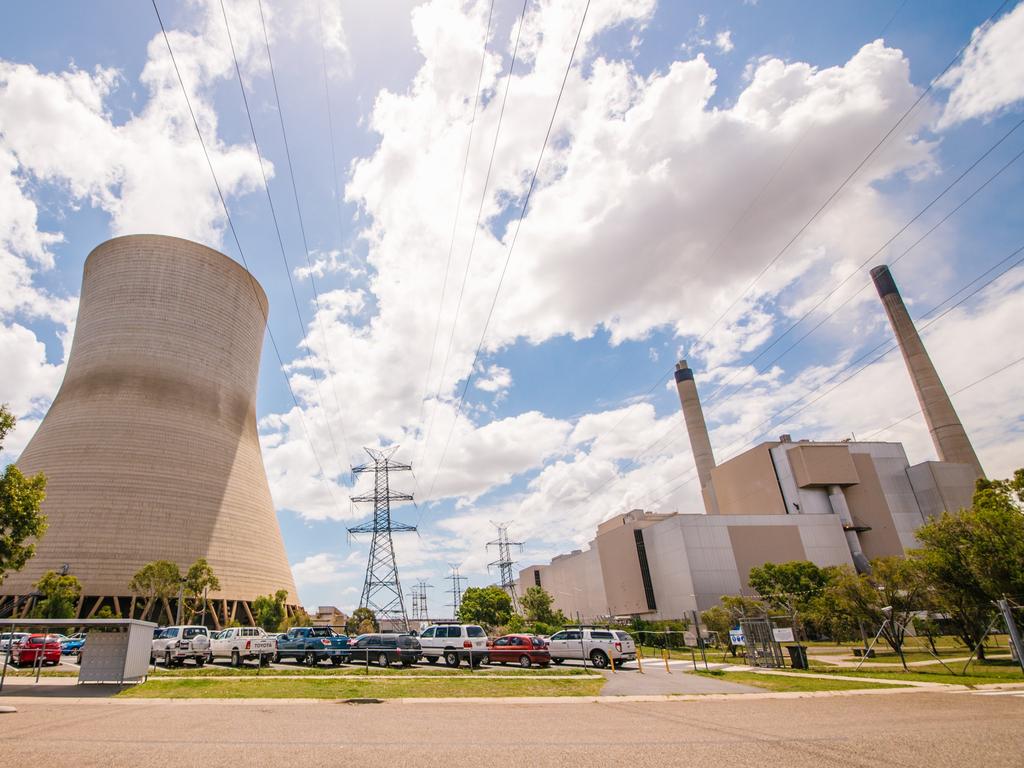New report finds maintenance an issue in the 2022 collapse of cooling tower at Callide power station
The collapse of a Callide cooling tower was due to timber supports which degraded over time due to the chlorinated water pumped through the tower, a new report has found.
Business
Don't miss out on the headlines from Business. Followed categories will be added to My News.
CS Energy’s failure to properly maintain a cooling tower at the Callide power plant in Queensland was a major factor in the 2022 collapse of the tower, according to a technical report into the disaster.
The report, prepared by consultants HartzEPM and released on Wednesday, says CS Energy was warned in 2015 “limited funding for maintenance would develop into a ‘major constraint’ for the operation of the cooling tower”.
The report by engineer Ray Hartzenberg was delivered to CS Energy on April 16, but has not previously been released by the state-owned company.
The key factor in the collapse was the use of wooden structural supports in the cooling tower’s design, according to the report, which degraded over time due to high levels of chlorine in the water pumped through the tower to reduce the risk of an outbreak of Legionnaires’ disease.
But, the final collapse in October 2022 had been preceded by a series of other failures of the structure dating back to January 2022, the report found, and substantial degradation within the tower had never been properly addressed by CS Energy as the operator.
“From the various inspection and incident reports, it appears that maintenance and repairs to the timber structure was only carried out when there was a breakage which directly affected the structural adequacy of the timber structure,” the report found.
The collapse of the cooling tower came after the March 2021 explosion, which crippled the Callide C power plant, and has helped keep Callide C out of commission for longer than otherwise expected.
CS Energy also released the much-delayed final report of forensic engineer Sean Brady on Wednesday, more than three years after the explosion.
Draft versions of the report had already been made public in the wake of legal action by Czech investment group Sev.en, which was a member of a consortium of private investors in the plant.
In a statement CS Energy chairman Adam Aspinall said he acknowledged both incidents were “unacceptable outcomes for the people of Queensland who trusted CS Energy to manage these assets on their behalf”.
CS Energy chief executive Darren Busine was appointed as the state-owned company’s boss in 2023 in the wake of the twin disasters, but served as its chief financial officer from 2016 and then served in other senior roles with the company.
Mr Busine said CS Energy did not believe its failure to properly maintain the plant caused the 2021 explosion.
“While on our reading of the Brady Heywood Report, a lack of maintenance did not cause the incident, we clearly have areas of improvement to ensure we operate and maintain our assets to world class standards,” he said.
More Coverage
Originally published as New report finds maintenance an issue in the 2022 collapse of cooling tower at Callide power station





